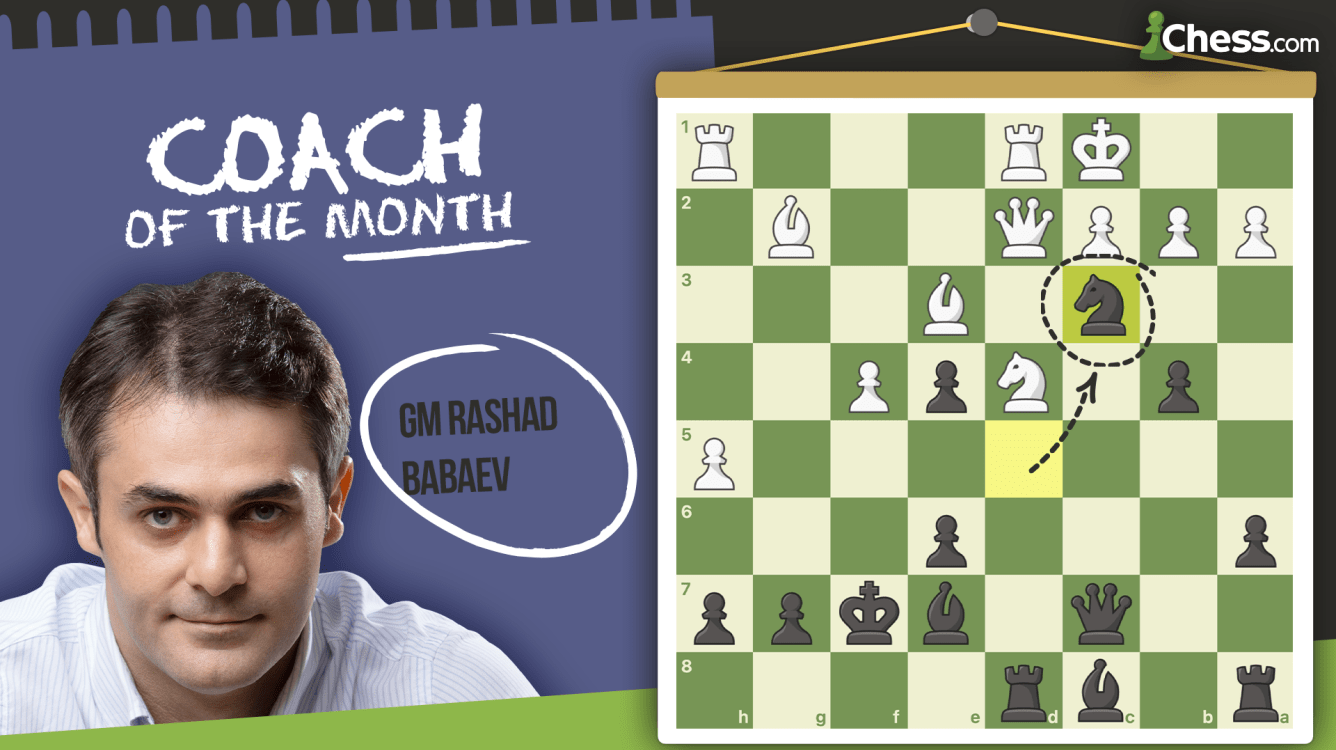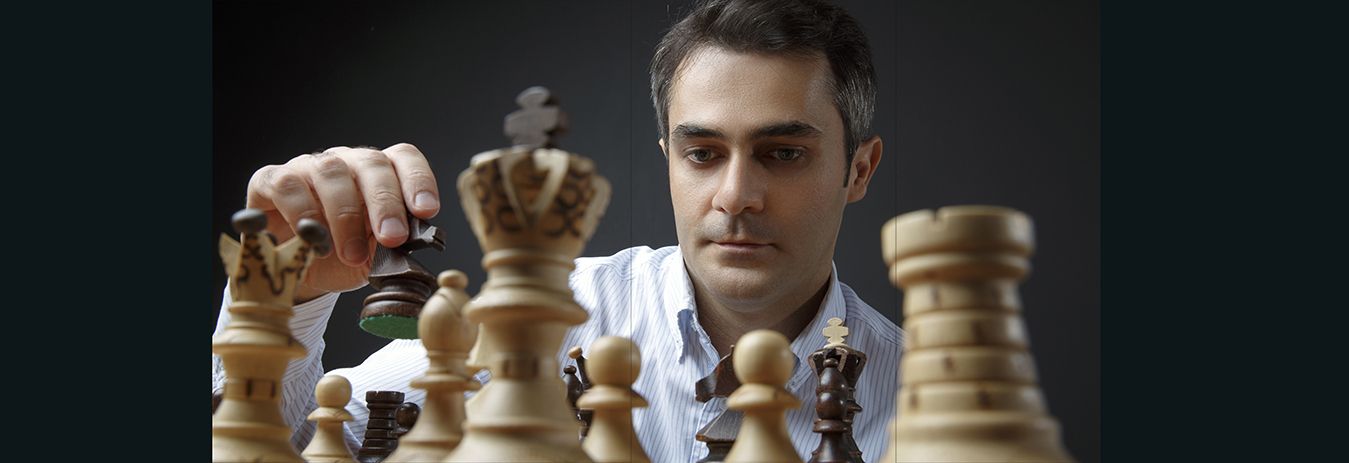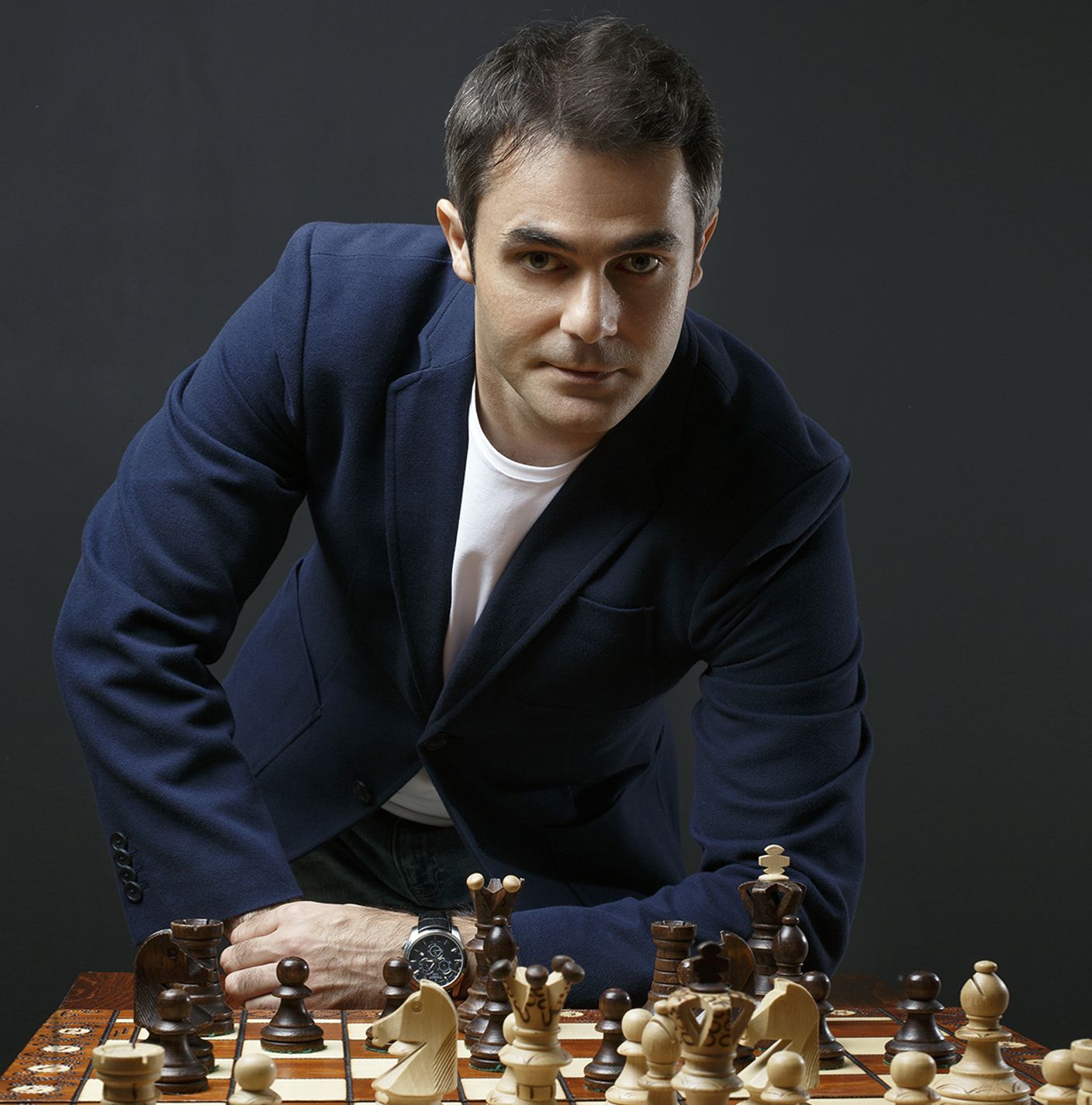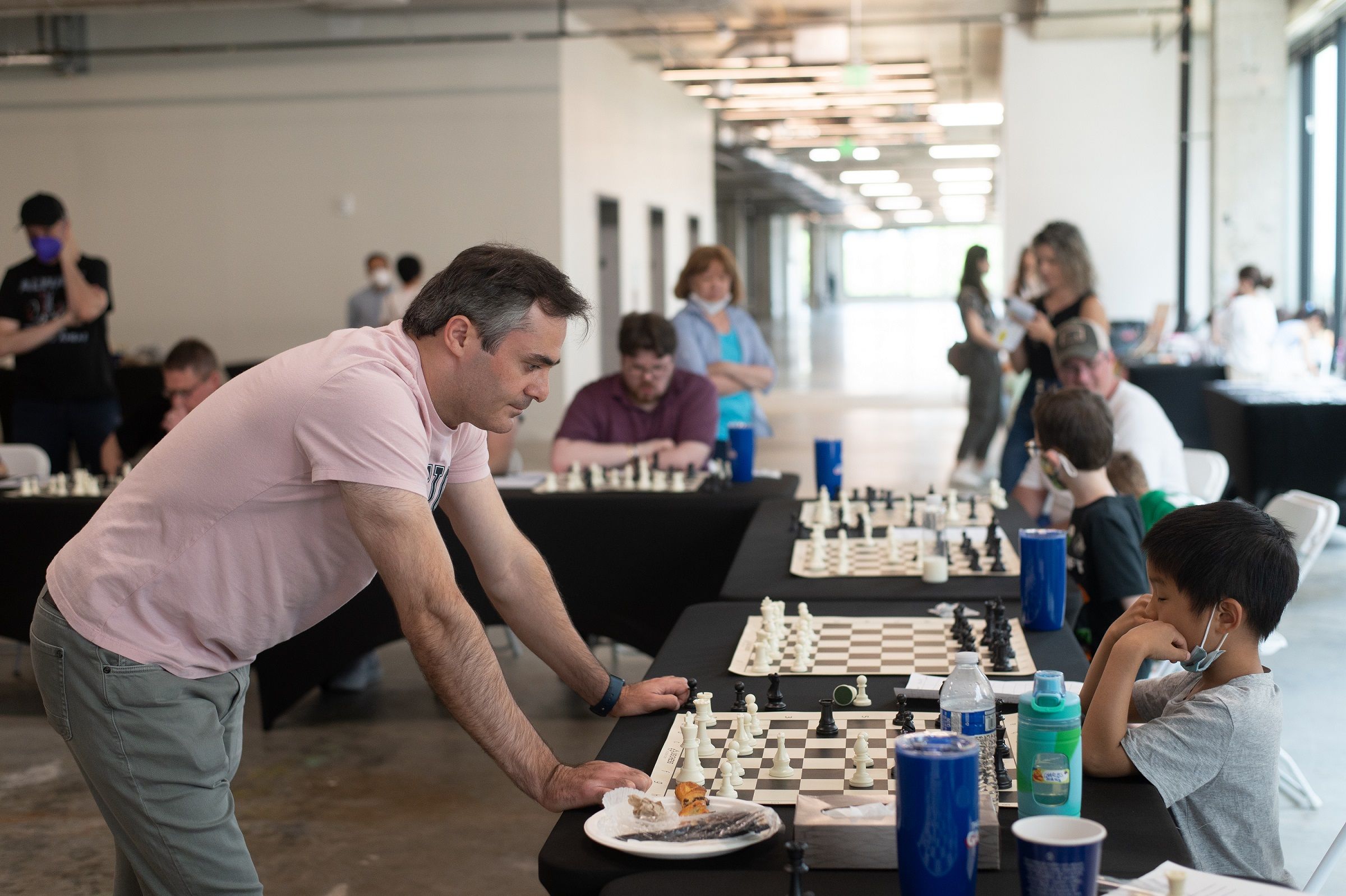
Coach Of The Month: GM Rashad Babaev
GM Rashad Babaev is a grandmaster from Azerbaijan who works as a full-time chess coach offering online and in-person instruction. In addition to winning multiple international tournaments, he has devoted most of his career as a grandmaster to developing young talents, and many of his students have gone on to earn chess titles. Could you be the next one?
Read on for Babaev's stories, tips on how to improve your chess game, and some fascinating chess games and puzzles.
Readers seeking private instruction can contact GM Babaev via his Chess.com profile and can find other skilled coaches at Chess.com/coaches.

At what age were you introduced to chess, and who introduced you?
I started playing chess at the age of four. My father introduced me to chess and I started winning against him pretty quickly. He himself was a player with a rating of around 1000. Then he took me to a chess school near us, and I was very lucky to learn the game from one of the best coaches of that time in Baku, Azerbaijan: Oleg Privorotsky, who was a coach of former world champion GM Garry Kasparov in his childhood.
Coach Oleg immediately recognized that I had talent, and told my father to support private lessons with him along with group classes. I picked up the ideas of the game quickly, and later became champion of the Baku. Then, my professional career as a chess player started, and I devoted all my life to the game.
What is your first vivid memory of chess?
Winning the Azerbaijan Men's Championship in 2009. It was an amazing moment to become a country's champion among very strong players.

Which coaches were helpful to you in your chess career, and what was the most useful knowledge they imparted to you?
Oleg Privorotsky was my first coach. After him, I worked with several local coaches such as FM Samir Badalov, IM Shur Mikhail (who currently lives in Massachusetts), GM Sarkhan Guliyev, and I also learned a little bit from lectures by IM Mark Dvoretsky in Moscow. I also received classes from the Ukrainian GM Vadimir Baklan, who is a close friend of mine. I am thankful to every one of them and learned a lot from each.
Privorotsky gave me a good understanding of chess and education, Samir Badalov shared his sharp tactical understanding, Shur Mikhail brought great opening ideas such as the Sicilian defense, Dvoretsky showed me how to analyze in chess, Guliyev contributed to my good classical and positional understanding, and Baklan helped me to improve my opening repertoire as a GM.
Which game do you consider your "Magnus Opus?"
I have many interesting games in both tactical and positional styles. I'll show you a game from the Azerbaijan Men's Championship in 2009. This was a decisive win against GM Eltaj Safarly with Black:
What has been your proudest achievement as a chess coach?
I have worked as a coach from a young age and was a trainer of the Azerbaijan Youth Chess Team back in the 2000s, with good success. Many of my students became national masters, FIDE masters, or international masters. I worked with many grandmasters as well, helping them to improve some areas of their chess. My proudest achievement as a coach has been seeing how students apply skills you teach to real-life games.
How would you describe your approach to chess coaching?
Chess should not be about memorization. This is my approach. A good chess education, solid understanding, and good calculation are the skills that make a strong player.

What do you consider your responsibility as a coach, and which responsibilities fall on your student?
The responsibility of a coach is to pass on their skills, and also their practical experience to the students. Good coaches find the right path for each student, as all of them are different. There is not one path that suits everyone. The task of a good coach is to understand this and be flexible with their methods and material. The responsibility of students is to work more at home, become good at analyzing their games, work hard on tactics, and strictly follow their coach's instructions.
Good coaches find the right path for each student... There is not one path that suits everyone.
— GM Babaev
What is a piece of advice that you give your students that more chess players could benefit from?
Go for your dreams. Nothing is impossible. Hard work always pays off. If you are a hard worker, it means you can achieve everything you dream of.
Can you tell our readers more about GMPrep?
GMPrep was established in 2013. We provide high-quality chess education to all levels and ages. We also promote chess in schools, universities, and colleges. GMPrep mainly operates online. As the founder of GMPrep, I help chess players to pursue their goals and share my coaching experience with them. At GMPrep, we have taught over 11,000 students both online and in-person including at schools, lectures, and more.
What is your favorite teaching game that our readers might not have seen before?
It is hard to choose one in particular, as I have many cool games to show to my students from classics... but if I need to choose, then it will be Karpov-Kasparov Linares 1993, where Kasparov sacrifices his rook but before he sacrifices a pawn for an interesting initiative in the game.
What is the puzzle you give students that tells you the most about how they think?
This one is taken from Geller-Smyslov, 1949. The theme is a blockade, but it helps me to understand how a player thinks, what their logic is, and their chess education. [Note: the position can be found on move 23.]
After 23...Qg6, Black wants to establish a blockade on the f5-square with the knight. If it happens, White will struggle for the rest of the game. A strong player should not have any doubt about sacrificing the f-pawn to get active compensation for it. It is a great puzzle I like to use.
Do you prefer to teach online or offline? What do you think is different about teaching online?
I teach both, but mainly online because many players from all over the world can benefit from my lessons in this way. Honestly speaking, I do not see any difference in quality as I myself also took some online lessons from GM Ilya Smirin and GM Vladimir Baklan. If a student is serious and focused, they will improve from online or in-person classes at the same rate.
What do you consider the most valuable training tool that the internet provides?
The ability to search and find chess material quickly. I remember taking chess books and notes with me to tournaments. Nowadays it is so easy to find anything you need, and therefore we have grandmasters as young as 13 or 14 years old.
Lastly, which underappreciated chess book should every chess player read?
I like many books, especially the classics. Lasker's Manual of Chess is something I would recommend to everyone.
Are you a chess coach who's looking to find new students, build your brand, and get paid more for the work that you're already doing? Check out Chess.com's Coach Affiliate Program.
Previous Coaches of the Month:
- WGM Petra Papp
- Andrey Malkhasyan
- IM Pawel Weichhold
- AGM Jack Rodgers
- FM Alessandro Santagati
- FM Amir Hadzovic
- WFM Fruzsina Szente-Varga
- WIM Tijana Blagojevic
- Charlie Rosado
- GM Swapnil Dhopade
- IM Alberto Chueca
- Frank Johnson
- WGM Keti Tsatsalashvili
- IM Kostya Kavutskiy
- GM Arturs Neiksans
- FM James Canty III
- IM Levy Rozman
- CM Gabor Horvath
- AGM Colin Stapczynski
- NM Bojan Lukajic
- IM Mateusz Bobula
- IM Attila Turzo
- GM Max Illingworth






